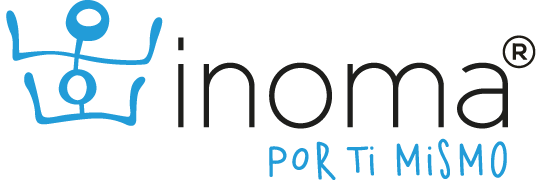
The coronavirus has modified our daily life and reality as we knew it a few weeks ago. It is important to be informed and know some essential data about the microorganisms that cause this type of disease and how we can prevent them.
Viruses act aggressively in the body, their mutation capacity means that vaccines are not 100% effective and it is necessary to know and study them in depth in order to develop effective treatments.
Diseases caused by a virus are treated very differently from those caused by bacteria because they affect the body in different ways. Usually for an illness caused by bacteria, the doctor simply recommends a dose of antibiotic. After treatment, the antibiotic returns the body to its natural state. However, when the illness is caused by a virus, the situation becomes more complicated because, despite the existence of antivirals, not all of them work effectively in the body.
The best solution and prevention for viral diseases is found in the immune system itself; being healthy and strong is the best antiviral medicine.
To help you understand it better, here are some key points to differentiate between the effects of a virus and those of bacteria.
What are bacteria?
Bacteria are living single-celled organisms that, unlike human cells, do not have a nucleus as such. There are thousands of bacteria outside and inside the human body that coexist peacefully, however, there are others that cause different diseases.
Some bacteria are good for the body because they help the body’s systems work and help get rid of other bacteria that are harmful to the body. This is the case with bacteria that help digest in the digestive system. In fact, many vaccines and medicines are made from bacteria that prepare the body to fight more dangerous ones.
Sergi Maicas Prieto, expert in microbiology, indicates that treating a bacterial disease can be easily achieved if a suitable antibiotic is available.
Now, what is a virus?
Viruses are inert and infectious agents that need to attach themselves to cells to survive and reproduce. Unlike bacteria, viruses are not fought with antibiotics, as the virus weakens the body and also the bacterial allies.
Many viruses do not have antivirals. This is when the body simply reacts and, together with its immune system, fights the virus and eliminates it naturally. As with all diseases, there are much more aggressive viruses for which the body is not strong enough to fight them. In these cases, doctors choose to try to inhibit the replication of the virus and strengthen the immune system in order to control the disease.
Viruses are difficult to treat because their mechanism, action and replication is very complicated to study and manifests itself differently in each organism and situation.
Coronavirus
Coronavirus is a viral disease named for its relationship to the virus that causes disease in mammals and birds.
The new and famous COVID-19 virus (coronavirus mutation) has become an international pandemic, which means that it has spread to almost every corner of the world. Being a new virus for the human being, implies that the antibodies and the immune system are not yet prepared to fight it and that is why it has become so dangerous.
How do you get COVID-19?
When an infected person coughs, sneezes or even talks, the virus travels in small particles of water that can fall into another person’s eyes, nose or mouth, also infecting them with the virus.
If a person has contact with an infected object, surface, or person and then brings his or her hands to touch his or her face, he or she may also be able to get the virus into his or her organism.
How to protect yourself from the virus?
Despite how easily the virus spreads, it is also very easy to take precautionary measures to avoid catching it and spreading it to others. These are some of the measures recommended by the World Health Organization (WHO):
- Avoid contact of any kind with infected persons.
- Coughing and sneezing into a tissue or elbow.
- Avoid touching your eyes, nose, or face during the day.
- Clean and disinfect frequently used objects and surfaces.
- Stay home and avoid going out.
- Wash your hands frequently.
Today there is no cure, vaccine, or antiviral specifically for coronavirus, but doctors are taking a variety of steps to combat it, from boosting the immune system to administering effective antivirals for other viruses that help fight the virus. As we mentioned before, viruses mutate constantly, so it is impossible to get totally effective vaccines; however, microbiologist Sergi Maicas Prieto indicates that “if the current forecasts are confirmed, in a few months we will have vaccines against this coronavirus”. Let’s hope we get this good news soon.
Learn more about bacteria
Our educational TAK-TAK-TAK video games are available for free so that all children can continue to learn from home in a fun way. Within our wide offer, we have Micros, a science video game that helps to understand the functioning of the bacteria that live inside our bodies.
We understand that what we are experiencing on a global level is difficult and that for some children it has become complicated to continue with their studies, so we make TAK-TAK-TAK available to everyone so that they can continue learning from home while having fun. Remember that it is important to stay at home and follow the recommendations of health experts so that we can soon overcome this complicated global situation. For more information about Coronavirus, please visit the official website of the World Health Organization.
Karl Tate. What is the Coronavirus? Livescience.com https://cdn.mos.cms.futurecdn.net/FNekkLuWwwEHboAKK34bk7-970-80.jpg
Sergi Maicas Prieto. (2020) Las diferencias en el tratamiento médico de virus y bacterias. National Geographic España https://www.nationalgeographic.com.es/ciencia/diferencias-tratamiento-medico-virus-y-bacterias_15383
Elana Peal. (2019) Gérmenes: bacterias, virus, hongos y protozoos. Teens Health from Nemours. https://kidshealth.org/es/teens/care-about-germs-esp.html















